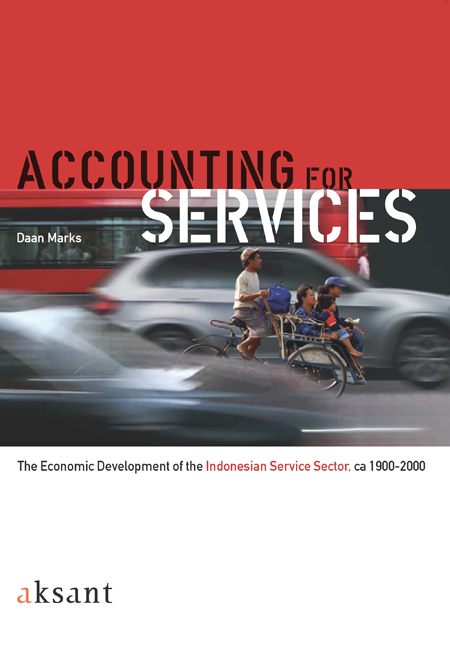Book contents
- Frontmatter
- Contents
- List of Tabels
- Acknowledgement
- 1 Introduction
- 2 National Accounting for Services in Indonesia
- 3 The Development of the Indonesian Service Sector: A Quantitative Analysis
- 4 Roads to Riches? Transportation and Economic Development in Indonesia
- 5 Involution and Growth: the Ambiguous Role of the Trade Sector in the Economic Development of Indonesia
- 6 Unity or Diversity?: Market Integration through Trade and Transport
- 7 Conclusions
- Appendices
- References
7 - Conclusions
Published online by Cambridge University Press: 19 January 2021
- Frontmatter
- Contents
- List of Tabels
- Acknowledgement
- 1 Introduction
- 2 National Accounting for Services in Indonesia
- 3 The Development of the Indonesian Service Sector: A Quantitative Analysis
- 4 Roads to Riches? Transportation and Economic Development in Indonesia
- 5 Involution and Growth: the Ambiguous Role of the Trade Sector in the Economic Development of Indonesia
- 6 Unity or Diversity?: Market Integration through Trade and Transport
- 7 Conclusions
- Appendices
- References
Summary
ACCOUNTING FOR SERVICES
Economic development in Indonesia during the twentieth century was highly erratic. Periods of unprecedented economic growth alternated with dramatic crises. Exportled expansion in the beginning of the twentieth century was followed by stagnation as a result of the worldwide economic depression. The revival that seemed to occur in the second half of the 1930s did not materialise due to the outbreak of the Second World War and the subsequent struggle for independence. The (at best) modest recovery that took place during the 1950s was swept away by the economic turmoil in the mid-1960s. Finally the New Order government of Suharto succeeded in setting Indonesia on a formidable growth path, which was, however, abruptly ended by the Asian crisis in 1997/98.
These broad observations are often repeated in the historiography on Indonesian economic development. But until the 1990s an extensive and consistent basis to quantitatively support these developments was missing. A first attempt to overcome this problem was undertaken by Van der Eng (1992) who adopted the system of Historical National Accounts for the study of long-term economic development in Indonesia. An updated version of this path-breaking work was published in 2002 (Van der Eng 2002). This offered the first consistent quantitative estimates of economic growth in Indonesia during the twentieth century. However, whereas Van der Eng's estimates for the agricultural sector were the result of very detailed work undertaken during his PhD research (Van der Eng 1996b), the estimates for the manufacturing sector and especially the service sector were based on more indirect measures and sometimes bold assumptions. Moreover, his service sector estimates consisted only of constant price series. Therefore it was believed that a careful reconstruction of the service sector within the framework of Historical National Accounts during the late colonial period and since independence could be an important contribution to the study of Indonesian economic development. In turn, the results would enable a systematic analysis of the long-term development of Indonesia during the twentieth century in general, and the service sector in particular.
- Type
- Chapter
- Information
- Accounting for ServicesThe Economic Development of the Indonesian Service Sector, ca 1900–2000, pp. 183 - 190Publisher: Amsterdam University PressPrint publication year: 2009



